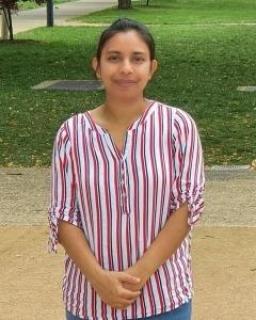
Position: PhD Candidate in Anthropology
School and/or Centres: School of Archaeology and Anthropology
Email: maksuda.khanam@anu.edu.au
Phone: +61480286438
Location: Banks Building (#44), Linnaeus Way
Qualification: MA in Development Studies, Erasmus University Rotterdam; MSS in Anthropology, University of Chittagong; BSS in Anthropology, University of Chittagong.
Maksuda Khanam is a PhD student of Anthropology and trying to locate broader frames that keep sustaining the increasing rate of caesarean deliveries in Bangladesh, particularly in its urban areas. Her research further aims to uncover the experiences of women having this surgical procedure to explore whether these women choose and/or support caesarean deliveries as helpful and means of exercising their agency or women seen themselves, the victim of it, marginalized by it and suffer from its negative outcomes throughout lives. In this way, her research aims to raise awareness around unnecessary caesarean deliveries in Bangladesh which in turn would help related stakeholders to formulate guidelines and policies regarding controlling unnecessary caesarean deliveries
Maksuda is also a faculty member of Anthropology at Jagannath University, Bangladesh (now in study leave). She has been working there since 2011.
Thesis Title: The health-based experience of middle-class women during and after caesarean deliveries: Bangladesh contex
Medical Anthropology, Gender and health, divorce and after divorce experience of women, Representation of childless women, Bangladesh, and South Asia etc.
Khalad, M.I and Khanam, M. (2020) ‘Between Universalism and Cultural Relativism: Understanding UNCRC as a middle ground approach’ The Jahangirnagar Review XLI: 345-354.
Khanam, M. (2017) ‘A Comparative Analysis Between Walby and Mohanty’s Position on Feminist Movement Regarding Globalization’. Jahangirnagar University Nrivijnana Patrika (Journal of Anthropology), Vol. 22: 97-106.
Khanam, M. (2014) ‘After-Divorce Experiences: A Case of Educated and Economically Independent Women in Chittagong City, Bangladesh’. Jahangirnagar University Nrivijnana Patrika (Journal of Anthropology), Vol. 19: 69:88.
Khalad, M. I and Khanam, M. (2013) ‘From Child Right Approach to Family Cantered Approach: Crisis of Development Organization to understand children’s reality’ (In Bengali). Nrivijnana Patrika (Journal of Anthropology)18: 83-96.
- Looking at Male Reproductive Health in Bangladesh: Exploring Young Adult Men's Understanding and Practices of Reproductive Health
2018/19 | Worked as a Research Coordinator of this project funded by the University Grants Commission (UGC), Bangladesh.
My main responsibilities include taking part in research design, developing qualitative study tools, collecting qualitative data using in-depth interview (IDI) and focus group discussions (FGD), participating in primary data analysis and report writing.
- Social Representations of ‘Childless’ Women in Bangladesh
2016 | Thesis Paper for MA in development studies from International Institute of Social Studies of Erasmus University Rotterdam
This research work tried to examine the gendered social system that a ‘childless’ woman encounters regarding her reproductive status. To understand this, I have scrutinized various Bangladeshi newspapers, films, songs, dramas, and folklores and tried to understand the representation of childless women. After analyzing data, the study demonstrates that subjugation of ‘childless’ women is embedded in society’s pro-natalist ideology; that is ideology of essentialization of having children. This pro- natalism puts foremost demand on ‘motherhood’ in patriarchal social structure which in turn make biological ‘role’ as the only ‘role’ for all women to be fit in society.
- Divorce in the Muslim Women’s life: Observed in the Family Domain of Bangladesh
2009 | Dissertation Paper for BSS in Anthropology from University of Chittagong.
This research paper tried to explore social stigma and difficulties divorced Muslim divorced women faced in the family domain of Bangladesh. My result showed that divorced women in Bangladesh feel under control and excluded because of being married is an essential social norm in here and it is not easily sympathized when individuals do not confront to this norm through act of divorce. Even if a woman being educated keeps her economic independence after divorce and experiences some positive outcomes which makes divorce as experience of relief, this may not be true for her social life. She may have to develop strategies to overcome social challenges and the grief emanating from those difficulties
2020 – Present: ANU HDR Fee Merit Scholarship
2020 – Present: ANU University Research Scholarship (International)
2015 - 2016: Scholarship-The Netherlands Fellowship Programme
2014–Present: Assistant Professor, Department of Anthropology, Jagannath University, Bangladesh.
2011–2014: Lecturer, Department of Anthropology, Jagannath University, Bangladesh.